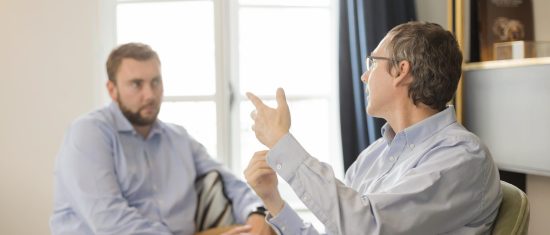“The valuations of most start-ups have fallen by around 30%”.
The growth and sustainability of start-ups depend on a complex financial ecosystem, which the Covid-19 pandemic has not spared.
Worse still, it revealed its extreme fragility. Let’s face it, the virus never stops shaking up the rules of our world.
The past already seems far away, the present is cloudy and the future is not yet clear.
The current health crisis provides concrete, flagrant proof of the VUCA dimension of the context in which we all live, and in which Volatility, Uncertainty, Complexity and Ambiguity rule.
The French President’s announcement last Tuesday of three “if-then” phases is a perfect illustration of this.
Aware of the huge economic stakes involved, the French government has set up a series of stimulus packages to support businesses by consolidating their financing capacities and easing payment deadlines for social security contributions.
While these measures have been effective in helping a large number of start-ups to survive, they have not been enough.
As a result, the valuations of most start-ups have fallen by around 30%, while those of GAFA continue to soar: Tesla is now worth over $500 billion on the stock market, and Apple as much as the CAC40! 
Start-ups, dependent on their funding partners
To fully understand start-up financing, the first thing to remember is that it brings together many different players with radically different cultures, whether family investors, venture capitalists, business angels, large corporations – both investors and customers – or incubators.
Incubators face the limits of their model
Long before the crisis, the incubator model was already in trouble. Their financing principle varies, but overall it’s as follows: start-ups pay them in cash and/or shares in exchange for premises, business contacts or training.
According to start-up owners, this system has proved costly, and the return on investment low, with incubators often tending to focus on the two or three nuggets in the portfolio.
Today, the incubators that are holding out are those with a solid financial base, or those that have emerged from major groups, such as Station F, financed by multi-billionaire Xavier Niel, or Village by CA, set up by Crédit Agricole.
While The Family, The Refiners, NUMA and many others are closing up store, downsizing or pivoting…
Large companies navigate between two waters
After years of acceleration, the acquisition of start-ups by large companies has stalled since the first containment.
The obvious objective was to preserve liquidity.
But the health crisis also demonstrated their immense need for digitalization.
And as start-ups are in a position to provide agile, cost-effective support in these areas, start-ups and large companies will have to move forward even more hand-in-hand in the coming months and years.
Financiers shift from handbrake to gas pedal
During the first months of the lock-up, venture capitalists, family office investors and business angels opted for a wait-and-see attitude.
They all gave priority to securing their existing holdings or to ” wait and see “, bringing financing of new projects to a halt.
Nevertheless, the situation was becoming paradoxical, as powder money has never been so plentiful, and in recent weeks we’ve seen a rebound in fund-raising, with Mirakl being one of the most significant examples.
What are the bets for the future?
In the face of the health crisis, start-ups have adapted much more fluidly than so-called “traditional” companies.
And, if the latter are to carry out in-depth reflections on their working and management methods, they are going to need the digital skills of start-ups.
Leadership, in its most authentic dimension, will play a central role in connecting energies, linking teams with their environment and integrating risk-taking into the daily life of every company.
Far from being an alarmist, I am clear that this crisis anchors us all in the reality of today’s world: we are going to have to live with uncertainty, and there will be no “return to normal”.
Companies, start-ups and large corporations alike, need to change their ways.
The future looks set to be rich in new prospects, and it’s highly likely that business will pick up again in 2021.
All that remains is to discover the rules and forms!
And with the strengthened conviction that human and cultural factors will be even more central to this “next world”. Co-founder ofConnection Leadership, Patrick Hoffstetter has spent 30 years in a wide range of positions, in major international groups, GAFAs and startups.
Co-founder ofConnection Leadership, Patrick Hoffstetter has spent 30 years in a wide range of positions, in major international groups, GAFAs and startups.

